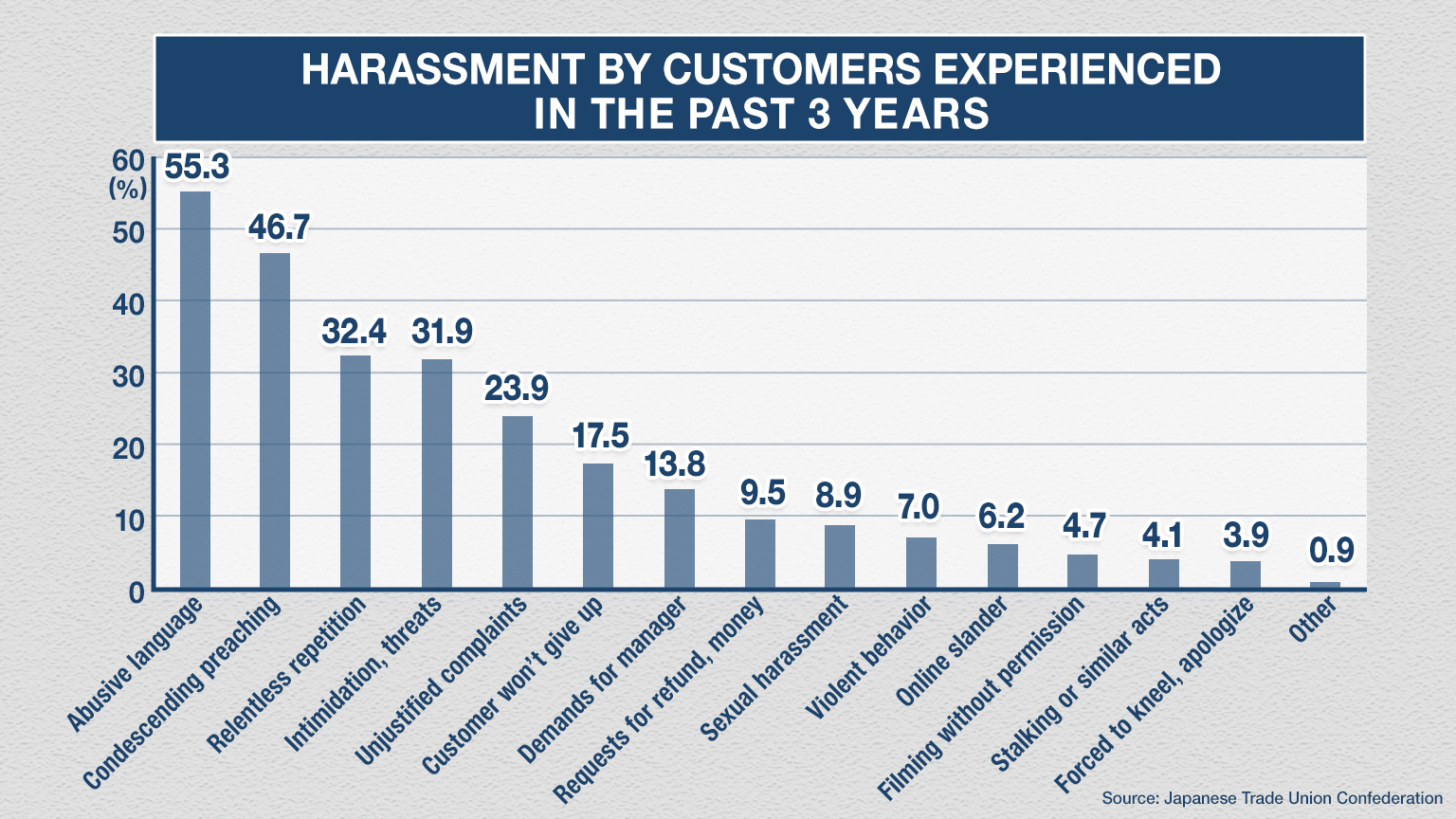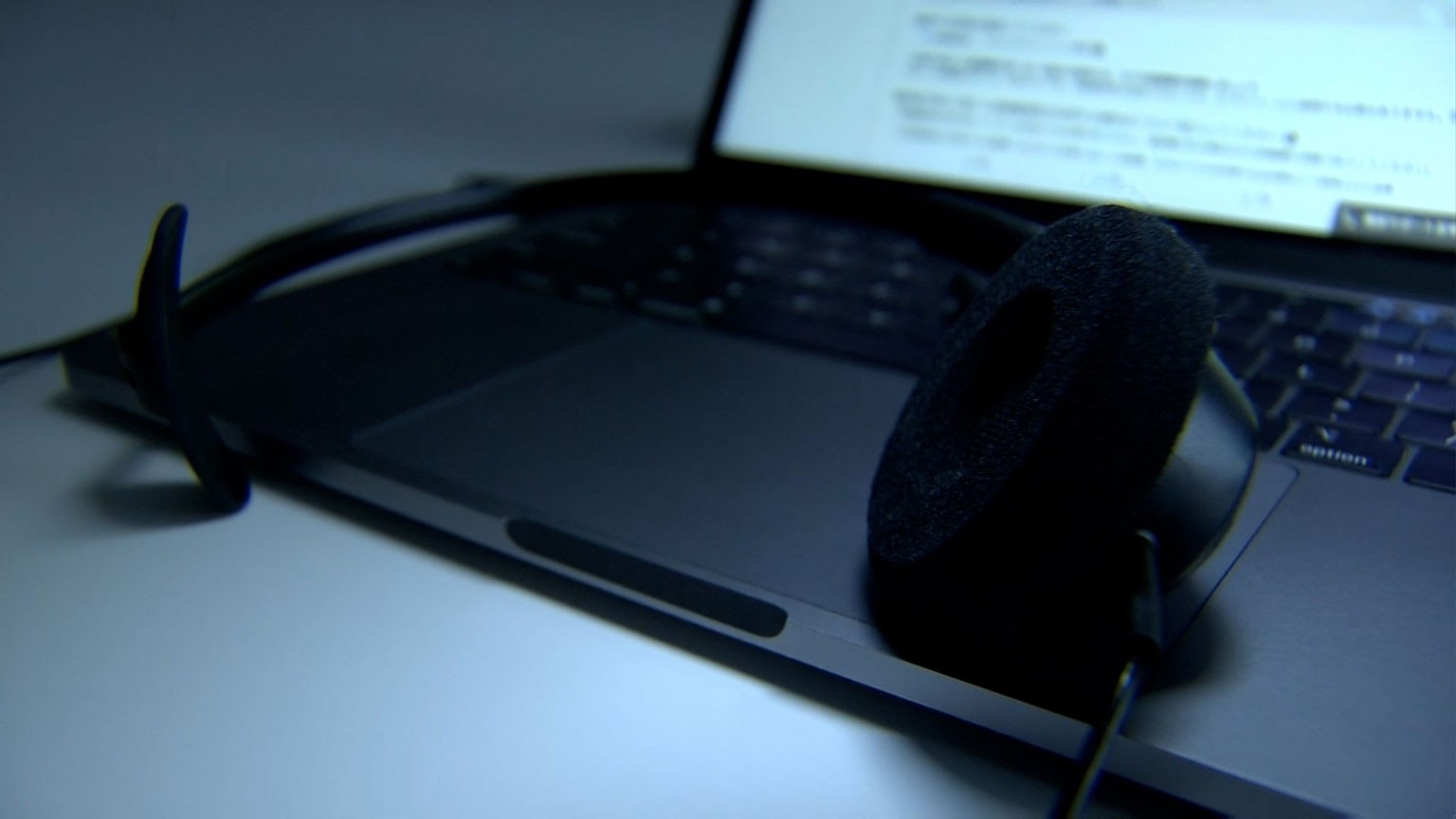Tokyo Governor Koike Yuriko says the problem has been worsening in the capital, prompting calls for regulations. She told the Tokyo Metropolitan Assembly that she is considering such a move.

The Tokyo Metropolitan Government set up a task force last year to deal with the problem, which can range from verbal abuse to being forced to bow down on hands and knees. University professors and officials from labor organizations have been discussing the issue.
The question of penalties for the ordinance proved difficult. During discussions, some members said setting penalties for specific actions could make the public feel that actions not subject to punishment were permissible.
Others said it would take time to decide what actions would be subject to penalties.
As a result, the Tokyo Metropolitan Government is at present considering creating an ordinance that doesn't impose penalties.
The Metropolitan government will hold debates in the current session of the assembly and plans to submit a draft as soon as possible.
Types of 'customer harassment'
An expert who offers advice to companies on dealing with bad customer behavior says customer harassment falls into roughly five categories.
- Targeting individuals as a form of stress relief.
- A distorted sense of justice, in which people express their feelings for a long time as advice.
- Attack type, in which people demand things such as having a person kneel down on the ground.
- Illusion type, in which people think they are passing the responsibility on to others.
- Strong obsession, in which mentally unstable people are obsessed with listening to their own opinions.
Verbal abuse ranks high
A survey was conducted by the Japanese Trade Union Confederation, or Rengo, of people who have suffered customer harassment in the past three years.
More than half were verbally abused, subjected to violent words and rudeness during work. This was followed by customers lecturing them with authoritative attitudes.
After these came persistent repeated threats, unjustified complaints and posts to the workplace, words and actions that discourage the receiver, and acts that obstruct business.

Another survey by Rengo found that three out of four workers who were abused by customers say their lives have changed. They cited feeling depressed when they were at work, or poor health.
Expert: Complaining entrenched in Japanese society
Kansai University Professor Ikeuchi Hiromi of Kansai University is a social psychologist and an expert in customer behavior.
She says businesses have raised the level of their services, but that past problems increased customer mistrust and led to higher demands, creating dissatisfaction.
Ikeuchi says expressing complaints has become common due to the spread of social media, with a rapid increase in the number of people using video and photos to vent their complaints. Then the complaints may become sensational and go viral.
The expert says it may not be exactly appropriate to call it a culture, but once people get accustomed to this "complaint culture," it's not easy to abandon.
Even though the Tokyo Metropolitan Government has decided not to impose penalties, Ikeuchi said it is still significant that it wants to take a firm stance in the form of an ordinance. She added that she hopes the move will spread to other municipalities.
